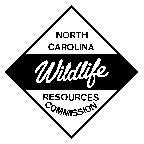North Carolina Wildlife Commission Offers Tips on Coexisting with Black Bears
OutdoorHub 05.11.12

As the weather warms, the N.C. Wildlife Resources Commission is offering advice on avoiding conflicts with black bears emerging from hibernation.
The Commission is cautioning people to take care not to feed bears that wander into camp sites, yards, parks, sidewalks or other residential areas. Feeding a bear rewards it for coming close to people and their homes, and makes it more likely to approach again.
While black bears are rarely aggressive toward people, they can become bold when they become accustomed to feeding on human-provided foods, such as garbage and bird seed. Often, they may lose their fear of people.
Contrary to popular belief, wildlife employees will not trap and relocate bears, because this would simply relocate the problem, rather than solve it. The solution is to modify habits, such as how you feed your pets or where you store your garbage, before a problem begins.
Residents can prevent problems by:
- Securing bags of trash inside cans stored in a garage, basement or other secure area, and placing the cans outside, as late as possible, on trash pick-up days — not the night before.
- Purchasing bear-proof garbage cans or bear proofing your existing garbage container with a secure latching system.
- Discontinuing the feeding of wild birds during spring and summer, especially in areas close to bear habitat or if residents are aware of bear activity in the vicinity. Even if bear feeders are removed at night, bears are still attracted to seed that spills on the ground.
- If you live in an area with bear activity, don’t leave home with windows or doors open and nothing but a screen to prevent an animal from gaining access to the house.
- Avoiding “free feeding” pets outdoors. If you must feed pets outdoors, make sure all food is consumed and empty bowls are removed.
- Cleaning all food and grease from barbecue grills after each use. Bears are attracted to food odors and may investigate.
For more information and more tips on black bears in North Carolina, read “Coexisting with Bears” on www.ncwildlife.org.

